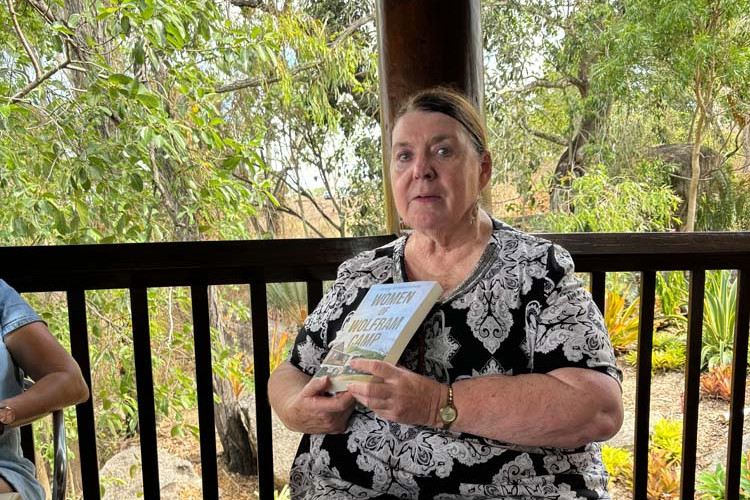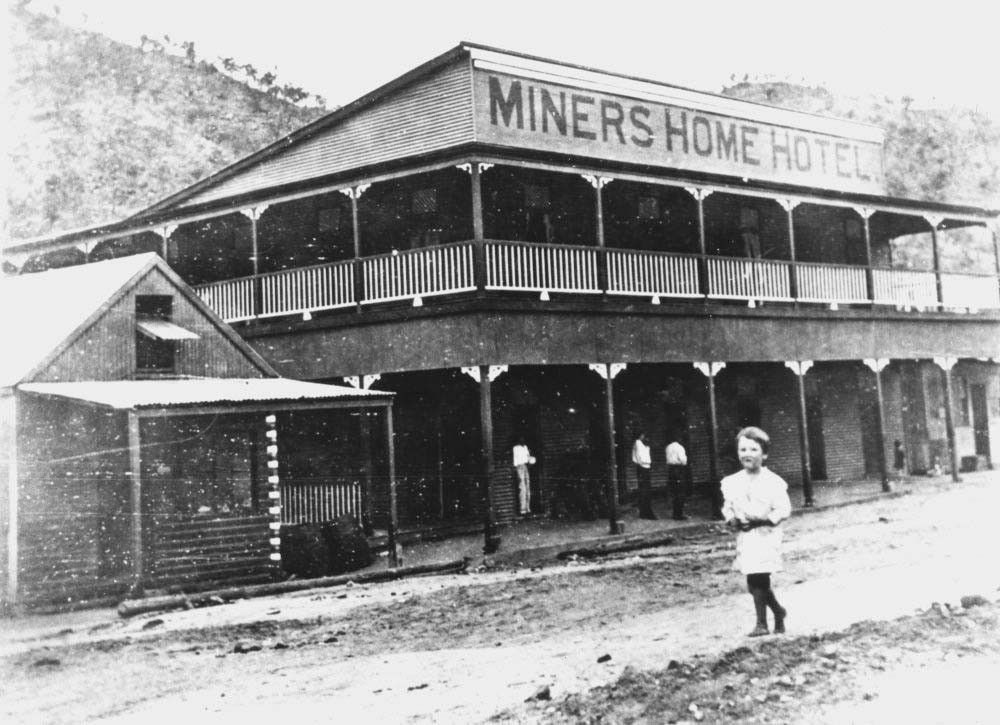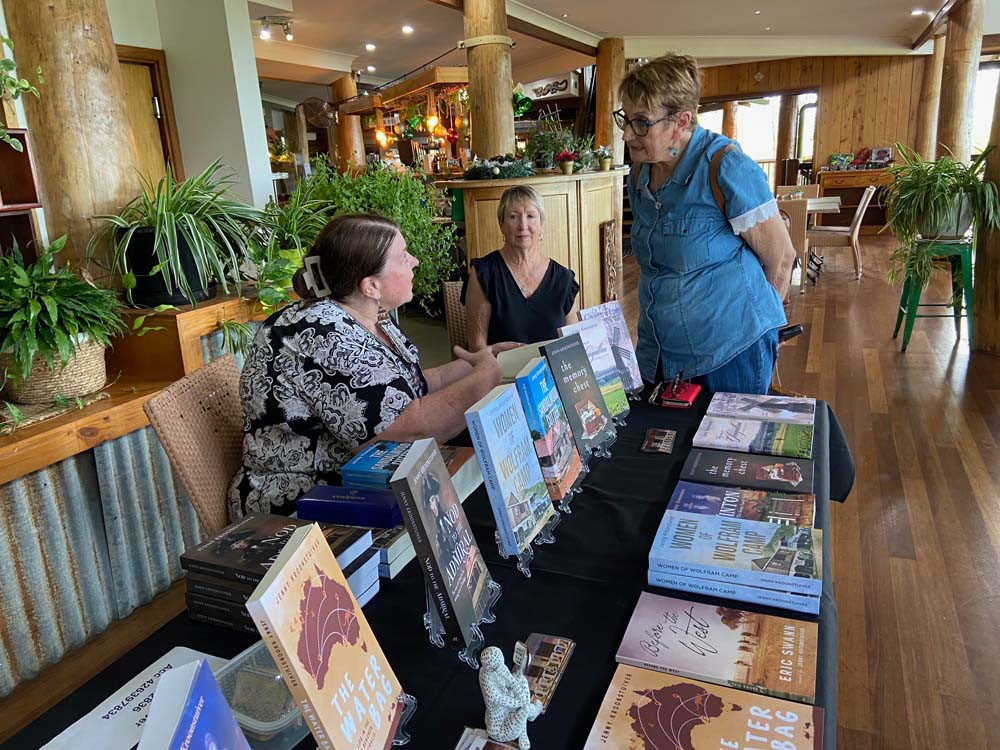Community & Business
12 December, 2024
Ghosts of Wolfram Camp come alive in new novel
IT was the day she retired, and the day Covid lockdown began. So clearly, she had to do something. And just like that, she began “career number five” and became a writer.

Four years and 11 books later, author Jenny Kroonstuiver is on the balcony of the Skybury coffee restaurant with its stunning views across the Tablelands, chatting to a keen audience and signing her latest novel, “Women of Wolfram Camp”.
But was it that simple? No, it was “terrifying”, she admitted. Jenny had never written before. Her only credentials were that she loved reading and history.
For 20 years before retiring she had run the National Meat Industry Training Council, and before that, taken various roles in the education sector in locations as far flung as Groote Eylandt and Kalgoorlie.
“I started with writing family histories, then I did some biographies, and then I thought ‘okay it’s time to write a novel’. And that was the most terrifying thing I’d ever done,” she said.
“With history and biography, I was fully confident, when you write a novel, you’re creativity comes to the fore and it was absolutely terrifying.
“I wrote ‘The Mirror Chest’ and people loved it. And I found my niche, which was writing historical fiction.”
“Woman of Wolfram Camp” is her fourth novel, and the idea for it came about in a “random” fashion.
“I had always been fascinated by ghost towns that had just disappeared, for whatever reason. I scanned a list of Australian ghost towns and saw Wolfram.
“I’d never heard of it. I started doing research on it and I was absolutely fascinated by this tiny little town, of which there is nothing left today, which had nearly a thousand people and was producing a quarter of the world’s tungsten during the First World War and was a major exporter out of the port of Queensland.”
Now living in Cairns, Jenny was amazed that the town was just 16km north-west of Dimbulah, and approximately 60km west of Mareeba.
As well as researching the history, she visited the area where the town once existed. The Mareeba Historical Society has put signage up where the buildings had been - a hospital, five pubs and administration offices. A cemetery is still there.
“Here was a major industry right on the doorstep,” she said.
“So I lived in the newspapers of the time (via the TROVE database) and got a sense of the town, who the main people were, the issues of the day,” she said. “So, the events in the book are real, as are some of the people, but the main characters are mine.”
Coincidentally, Wolfram Camp has also been on the radar of mining company EQ Resources, which was granted an exploration permit by the Queensland Government in July for the tungsten mine.
For Jenny, Wolfram Camp was the first time she had based a book solely around women and their stories.
“It’s always about the men of the town, the administrators, the bankers, their stories are well-documented” she said.
“This is about five women, and it’s set in 1917 which was the heyday of Wolfram Camp because it was getting towards the end of WW1, and the demand for wolfram [wolframite is the ore of the metal tungsten] was immense across the world.”
The main character, Felicity, arrives from Brisbane, which meant Jenny had to research train timetables and steamboat schedules to accurately depict her journey.
“I can spend days down the rabbit hole,” she said with a chuckle.
The other women include the owner of a guest house, a baker’s wife, a young mum and artist, whose husband is at the war, and an Indigenous woman, whose father was a gold miner.
Jenny said that while researching, she found the issues the women faced were so like issues still faced today, such as domestic violence, menopause and a woman’s place in the world. But it was also about the friendship and bonds women create to deal with life’s challenges.
“Women of Wolfram Camp” retails at $30.
Books are available at major retailers, Amazon and Ebay.




